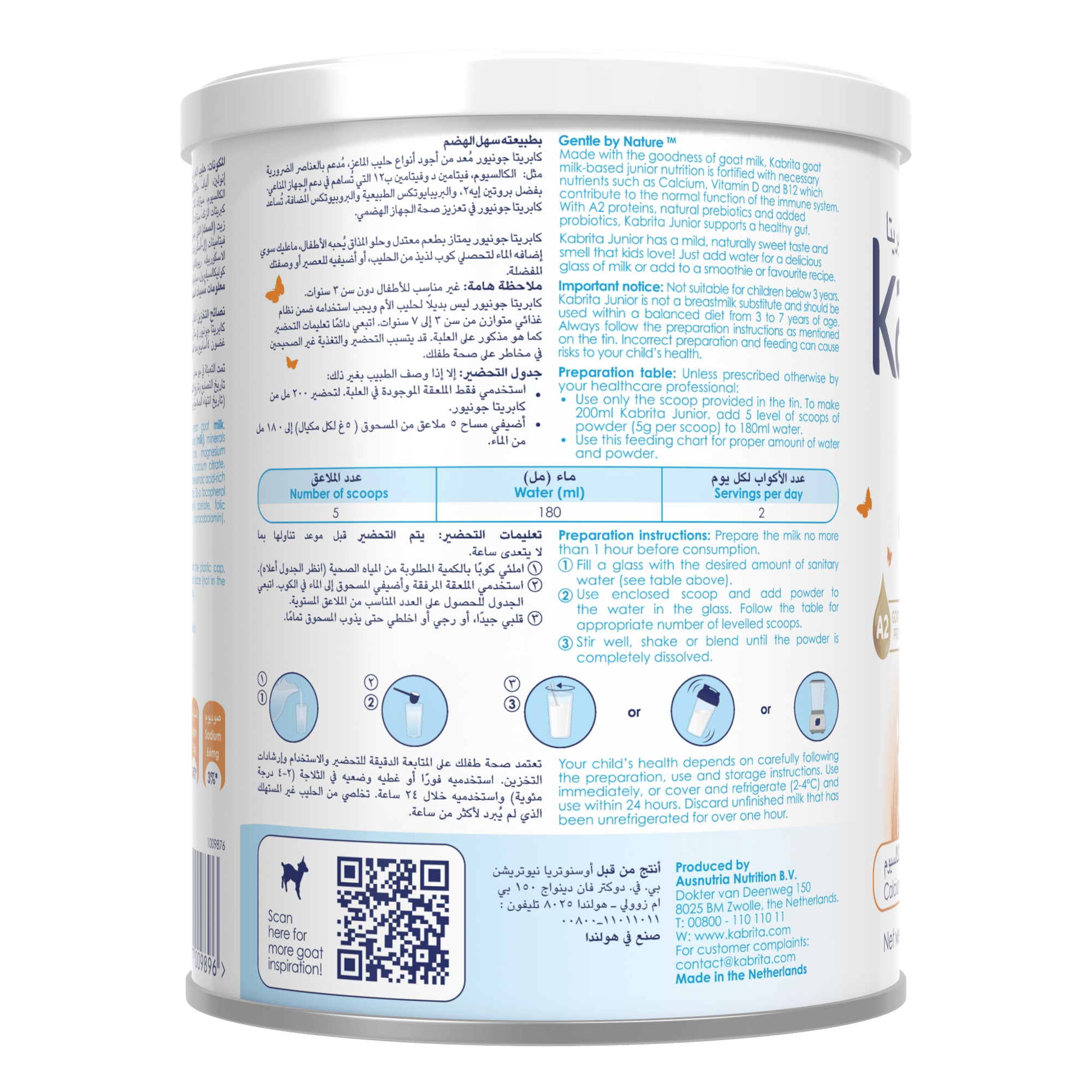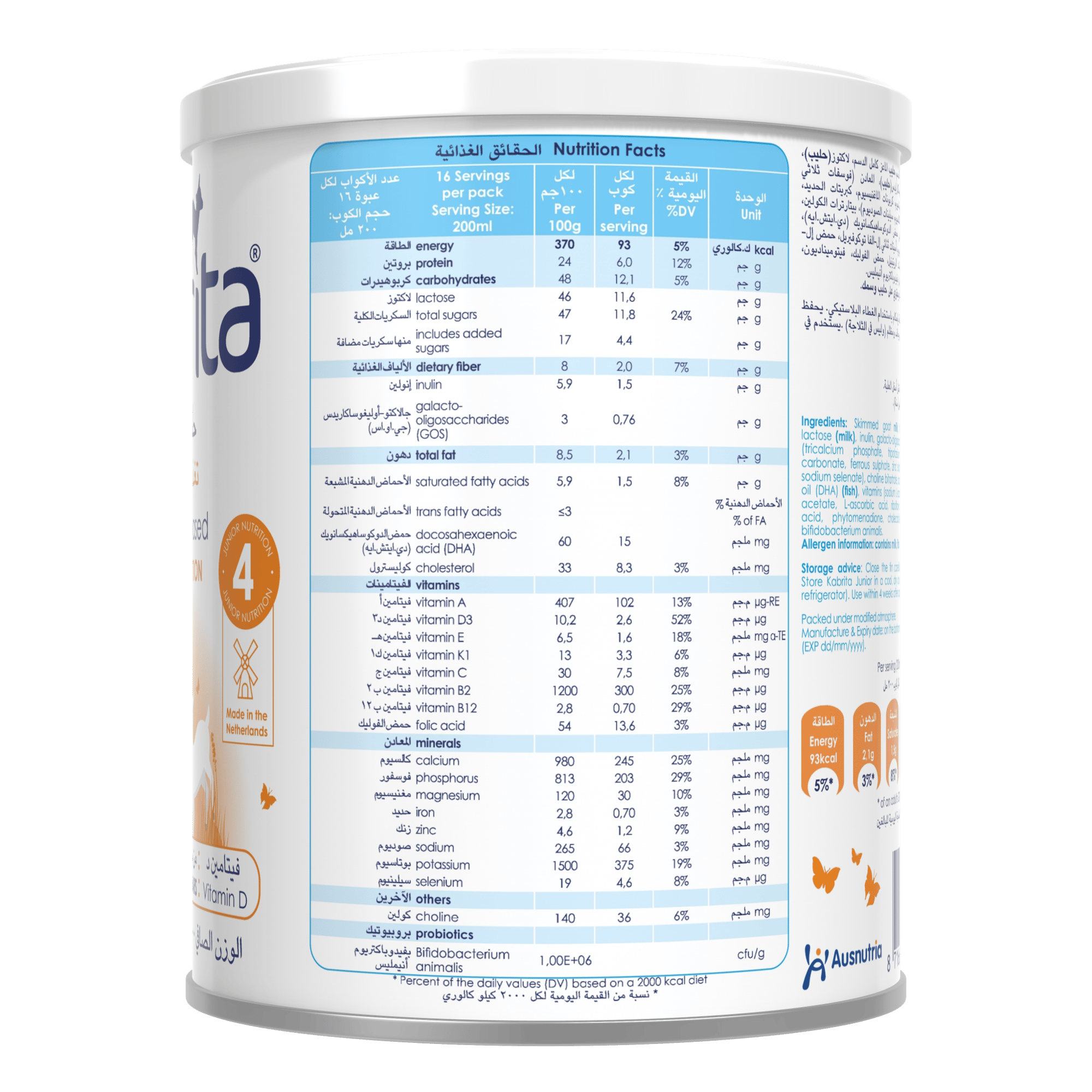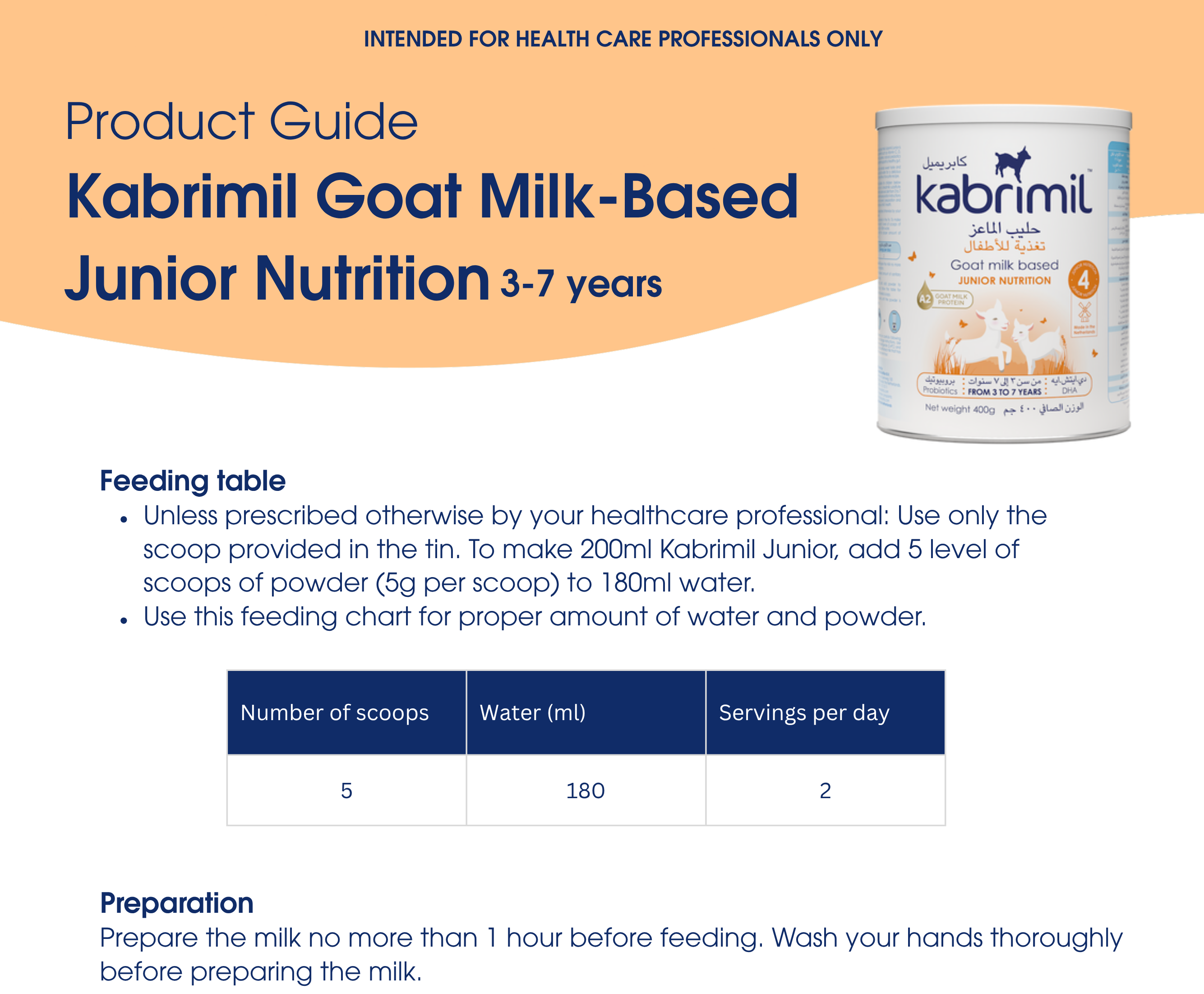-1.png?width=2000&height=1000&name=Your%20paragraph%20text%20(1)-1.png)
Goat Milk-Based Junior Nutrition
Kabrita Junior Nutrition is crafted with essential nutrients to support children ages 3 - 7 as part of a balanced diet. Kabrita Junior Nutrition is a convenient alternative to fresh dairy milk for little ones.

What's inside
Goat milk protein
Easier to digest than cow milk protein
Oligosaccharides
Goat milk naturally has 6x more than cow milk
Added probiotics
Bifidobacterium animalis ssp lactis may support a healthy gut
Vitamin D
Excellent source of vitamin D at 3.8mcg/serving
We know you want to review the label
Disclaimer: This recipe and label are specific to the ME formulation.

.png?width=2000&height=2000&name=Kabrita_400g_0-12_%201009876_Front%20(1).png)
Ingredient deep dive
Click on each ingredient to learn what it is and why we’re proud to have it in our formula
Skimmed goat milk is the base for all Kabrita products and provides both carbohydrates and protein, both essential for healthy growth and development in infants and children.
The carbohydrates are in the form of lactose, while the two major constituents of milk protein are whey and casein.4
Lactose is the main carbohydrate in goat milk, and carbohydrates are essential for childhood growth and development.
Lactose also has prebiotic properties and enhances the absorption of calcium and magnesium,22 and may support gut health by increasing the growth of beneficial bacteria.23
Galacto-oligosaccharides (GOS) are complex carbohydrates that are also naturally found in human milk.
GOS is the most studied prebiotic and has proven health benefits for infants such as the ability to stimulate growth of beneficial bacteria, hamper the growth of pathogenic bacteria, and improve stool consistency.30
Potassium has a strong relationship with sodium, the main regulator of extracellular fluid volume, including plasma volume.43
Magnesium is a mineral that is important for regulating muscle and nerve function, blood sugar levels, and blood pressure and making protein, bone, and DNA.47
Zinc also supports healthy growth and development during infancy, childhood, and adolescence and is involved in the sense of taste.51
Since 2020, the European infant formula regulations require DHA to be added to infant formula, although it’s not mandatory in the United States.39
Along with ARA, DHA is crucial for brain, eye, and neurological development.32,35
Vitamin C is also an important physiological antioxidant and has been shown to regenerate other antioxidants within the body, including alpha-tocopherol. It plays an important role in immune function and improves the absorption of nonheme iron.44
Vitamin C is also an important physiological antioxidant and has been shown to regenerate other antioxidants within the body, including alpha-tocopherol. It plays an important role in immune function and improves the absorption of nonheme iron.44
Riboflavin also helps maintain normal levels of homocysteine, an amino acid in the blood.55
Vitamin D is a fat-soluble vitamin that promotes calcium absorption in the gut and is critical for normal bone mineralization, bone growth, and bone remodeling.
Vitamin D has other roles in the body, including reduction of inflammation as well as modulation of such processes as cell growth, neuromuscular and immune function, and glucose metabolism.
Many genes encoding proteins that regulate cell proliferation, differentiation, and apoptosis are modulated in part by vitamin D.64
Bifidobacterium animalis ssp. lactis (BB-12), is the world’s most documented probiotic Bifidobacterium.
BB-12 has been shown to support a healthy gastrointestinal microbiota, improve bowel function, to have a protective effect against diarrhea, and to reduce side effects of antibiotic treatment, such as antibiotic-associated diarrhea.
In terms of immune function, clinical studies have shown that BB-12 increases the body’s resistance to common respiratory infections as well as reduces the incidence of acute respiratory tract infections.66
Junior nutrition product resources

Junior Nutrition Product Guide
Learn what makes Kabrimil an ideal junior nutrition for children with our 2-page resource. Discover ...

Medcast Podcast
Medcast is a podcast by Consultant Pediatrician Dr. Wafaa Faysal, covering a wide range of health an...








